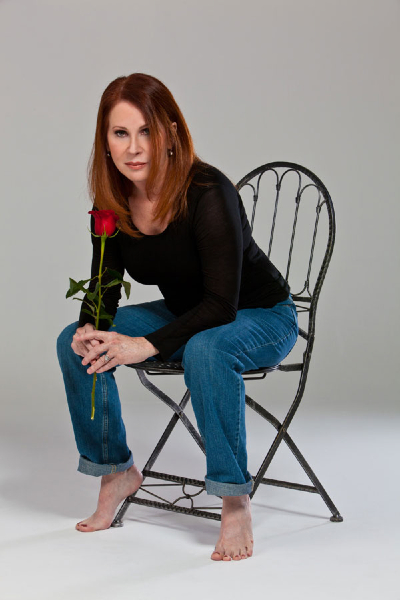 How many supergroups can you name in 30 seconds without thinking?
How many supergroups can you name in 30 seconds without thinking?
Let’s see… there’s Bad Company, Blind Faith, Cream, Them Crooked Vultures, Asia, GTR, Streets, The Highwaymen and Crosby, Stills & Nash… just to name a few.
One that may slip under the radar– but should be on par with all the others– is Animal Logic. Thirty years ago, this trio, featuring the unique combo of Return to Forever bassist Stanley Clarke and Police drummer Stewart Copeland hit the scene with a sound that wasn’t quite jazz, wasn’t quite new wave (certainly wasn’t hair metal), but was all its own.
Fronting the group of now-described legends was Deborah Holland, a 10-year veteran musician at the time, until she received a phone call asking her to audition for the band. Showing up in a pink thrift-store dress and cowboy boots, she secured the gig after working out two original compositions with duo of Clarke and Copeland (“There’s a Spy (in the House of Love)” and “Firing Up the Sunset Gun”) and singing Bonnie Raitt’s “Give It Up or Let Me Go.”
“Two weeks later I was singing in front of 8,000 people in Brazil,” Holland told me recently.
Animal Logic’s eponymous debut, released in 1989, did not boast great commercial sales but boasts some great songs – “Someday We’ll Understand,” “Sunset Gun” and “Someone to Come Home To” not only showcase Holland’s fiery vocals but also demonstrate the talents of Clarke and Copeland, both of whom are no strangers to the supergroup concept (Clarke with Rite of Strings, Copeland with Oysterhead).
“Almost all songs from the first album were already written. They were written at a time in my life where I had decided I was never going to be on the cover of Rolling Stone so I’d return to writing songs for my own pleasure,” said Holland, a Vancouver-based musician and program coordinator for continuing studies at Langara College. “Lots of the songs were about a failed relationship and some were about trying to figure out my place in life.”
The group’s debut album would be mixed in London (“because it was polo season”) and released to little fanfare, despite some strong television promotional appearances and a series of music videos on music television.
“Critics were expecting some type of jazz fusion album and were disappointed it was a pop album,” Holland said. “We didn’t fit into any radio format so there really wasn’t much success. Ever.”
Unlike other supergroups, the band would last for four years and a second album, Animal Logic II (“there are tons of prog-rock fans who love that record” Holland told me). However, like nearly all supergroups, they would ultimately break apart.
“We thought of it as a band, not a project,” Holland said. “It turned out to be a (small) stepping stone for me, a blip in the careers of Stewart and Stanley. They were and are really great guys.”
So why devote time discussing a supergroup that didn’t make much of a dent in the music industry? I could argue that in an era when band leaders are determined from televised music competitions or YouTube videos and go on to front mainstay groups (Bo Bice – Blood, Sweat and Tears; James Durbin – Quiet Riot; Arnel Pineda – Journey), I long for the days when supergroups were formed organically, putting emphasis on original talent and not just looking to generate a quick buck.
In the case of Animal Logic, the group may have been short-lived, but their debut album changed the dynamic of how a supergroup should approach both look and sound.
I recommend firing up their work as soon as possible.
-Ira Kantor
Dig the column? Reach out to Ira via email at ikantor84@gmail.com or on Twitter at @ira_kantor







Be the first to comment!